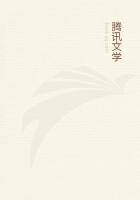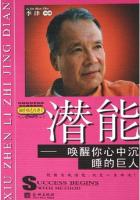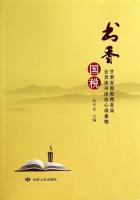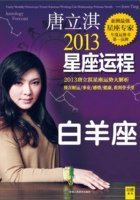Moreover, see whether the like inflexions in the definition apply to the like inflexions of the term; e.g. if 'beneficial' means 'productive of health', does 'beneficially' mean productively of health' and a 'benefactor' a 'producer of health'?
Look too and see whether the definition given will apply to the Idea as well. For in some cases it will not do so; e.g. in the Platonic definition where he adds the word 'mortal' in his definitions of living creatures: for the Idea (e.g. the absolute Man) is not mortal, so that the definition will not fit the Idea. So always wherever the words 'capable of acting on' or 'capable of being acted upon' are added, the definition and the Idea are absolutely bound to be discrepant: for those who assert the existence of Ideas hold that they are incapable of being acted upon, or of motion. In dealing with these people even arguments of this kind are useful.
Further, see if he has rendered a single common definition of terms that are used ambiguously. For terms whose definition corresponding their common name is one and the same, are synonymous; if, then, the definition applies in a like manner to the whole range of the ambiguous term, it is not true of any one of the objects described by the term. This is, moreover, what happens to Dionysius' definition of 'life' when stated as 'a movement of a creature sustained by nutriment, congenitally present with it': for this is found in plants as much as in animals, whereas 'life' is generally understood to mean not one kind of thing only, but to be one thing in animals and another in plants. It is possible to hold the view that life is a synonymous term and is always used to describe one thing only, and therefore to render the definition in this way on purpose: or it may quite well happen that a man may see the ambiguous character of the word, and wish to render the definition of the one sense only, and yet fail to see that he has rendered a definition common to both senses instead of one peculiar to the sense he intends. In either case, whichever course he pursues, he is equally at fault.
Since ambiguous terms sometimes pass unobserved, it is best in questioning to treat such terms as though they were synonymous (for the definition of the one sense will not apply to the other, so that the answerer will be generally thought not to have defined it correctly, for to a synonymous term the definition should apply in its full range), whereas in answering you should yourself distinguish between the senses. Further, as some answerers call 'ambiguous' what is really synonymous, whenever the definition rendered fails to apply universally, and, vice versa, call synonymous what is really ambiguous supposing their definition applies to both senses of the term, one should secure a preliminary admission on such points, or else prove beforehand that so-and-so is ambiguous or synonymous, as the case may be: for people are more ready to agree when they do not foresee what the consequence will be. If, however, no admission has been made, and the man asserts that what is really synonymous is ambiguous because the definition he has rendered will not apply to the second sense as well, see if the definition of this second meaning applies also to the other meanings: for if so, this meaning must clearly be synonymous with those others. Otherwise, there will be more than one definition of those other meanings, for there are applicable to them two distinct definitions in explanation of the term, viz. the one previously rendered and also the later one.
Again, if any one were to define a term used in several senses, and, finding that his definition does not apply to them all, were to contend not that the term is ambiguous, but that even the term does not properly apply to all those senses, just because his definition will not do so either, then one may retort to such a man that though in some things one must not use the language of the people, yet in a question of terminology one is bound to employ the received and traditional usage and not to upset matters of that sort.















